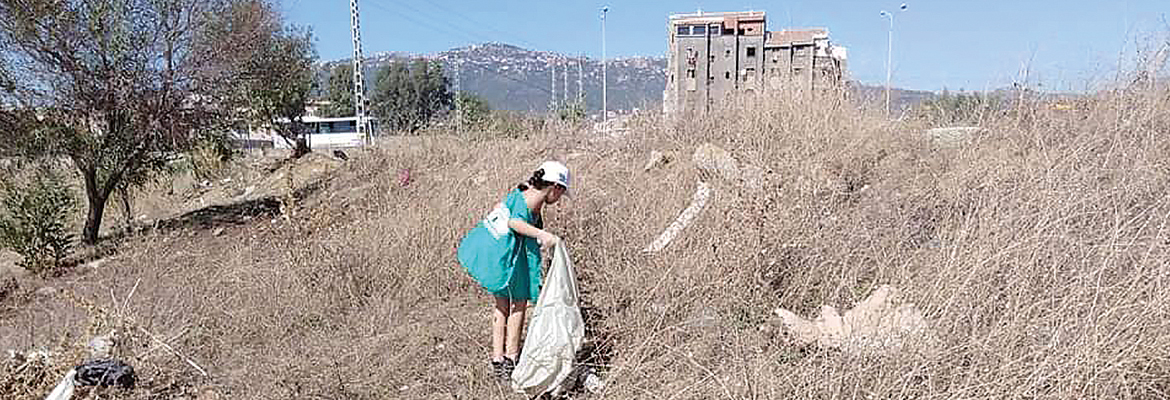2019 has been a complex year of transition for Algeria: street protests lasting over eight months led to the resignation of long-governing President Abdelaziz Bouteflika, and the interim government appointed to lead the country to new elections is facing similar opposition from the public. Protesters lament the persistence of a “caste” system in the Algerian political landscape. The country has also suffered in recent years because of falling oil prices – consider that 60% of Algeria’s income is derived from the sale of fossil fuels – and the average unemployment rate is 26.4%. Austerity measures and cuts to public subsidies in recent years have only worsened the situation. These circumstances had already led to a series of strikes and public protests at the end of 2017.
Although part of the government keeps pursuing an economy with close ties to oil, over the years the goal of economic and energy diversification has come to the forefront. The government aims to achieve it by employing a circular economy model. The efforts of Fatma Zohra Zerouati, Minister for the Environment and Renewable Energies, have been crucial to this shift in dynamic, and she has remained steadfast in her role and resistant to the political turmoil. In fact, it is thanks to her that Algeria is involved in international accords and events to educate and raise awareness on the circular paradigm.
 |
|
Fatma Zohra Zerouati |
An environmental engineer with a background in journalism and environmental campaigning, Fatma Zohra Zerouati recently said in a speech that “Algeria produces 34 million tonnes of waste a year and is predicted to reach 70 million tonnes by 2035, 50% of which is recyclable (plastics, domestic waste and the like). A vital requirement to remedy this situation – the minister claimed – is an orientation towards the circular economy, which will initially lead to the creation of 100,000 jobs, 40,000 of which will be direct.” According to Zerouati, this type of investment is crucial for the country’s future because it will sustain an economy that goes beyond fossil fuels. In support of this, a national strategy for integrated waste management has been drafted and there has been a revision of legislation related to the collection and disposal of waste. In particular, Law 19.01 from 2001 – related to waste management, control and disposal – has been adapted to better address new social, economic and environmental necessities.
To this end, at the beginning of the year the Ministry organised a series of regional conferences on the circular economy, adopting a workshop format divided into different areas, including those related to regulatory frameworks, recycling and recovery infrastructure, governance and attracting investments, startup development, value chains and the challenges of a circular economy at the local level. During these events, the different needs and worries of local administrators were identified using a productive approach, with the goal of developing a concerted and realistic roadmap and ensuring the transition towards a circular economic model. The Minister insisted that, “promoting circular economy requires collective involvement and constant mobilisation to lay the groundwork for sustainable development in Algeria.” Zerouati also declared: “the high volume of domestic waste at the national level has a commercial value of approximately 40 billion Algerian dinar per year” (almost 300 million euros), but that current recycling rates are still very low due to the lack of a deep-rooted waste separation culture.

The results of the preparatory regional conferences were then discussed at the first National Conference on Circular Economy, held on 25-26 February. Participants included stakeholders in the environmental, waste and energy sectors, as well as members of civil society. However, the Minister is not simply making speeches: there are in fact plans for the creation of a waste management and energy-from-waste complex, with the goal of reducing urban waste by 30% compared with current levels. The complex will serve four provinces – Algeri, Blida, Tipasa and Boumerdès – and it will also change collection systems, with the creation of waste transit and transportation networks, also involving the railway sector.
There’s more: the Minister has signed an industrial partnership agreement between the National Waste Agency and state-owned company Sopte (a subsidiary of Divinus group) for the production of biological fertilisers. The Algerian Ministry’s initiatives for the reconversion of its economic and energy model continued with the second edition of the International Exhibition of Environment and Renewable Energies (SIEERA 2019), on the theme of “Off-grid renewable energies for the development of agriculture in the south.” China participated in the exhibition as a guest of honour, and the plan is to organise more events to keep attracting international investors to Algeria. An example of this is the partnership developed in the renewable energy sector, which involves Italy’s National Agency for New Technologies, Energy and Sustainable Economic Development (ENEA), Greece’s National Centre for Renewable Energies and Energy Efficiency (CRES), Austrian consulting company Allplan – which specialises in energy efficiency issues – and Belgian company IBF International Consulting NV. These organisations signed a contract for the provision of technical assistance in the renewable energies and energy efficiency sectors in Algeria, with a value of 8.2 million euro. The activities also include an energy labelling scheme for domestic appliances, and the energy certification of buildings and materials with high-energy capabilities.
The current Algerian government’s days seem to be numbered, and it is not clear how many of the projects mentioned above will be carried out in the coming months and years. Precisely for this reason, the uninterrupted efforts of Minister Zerouati for a greener Algeria are all the more relevant.
Sieera 2019 Salon International de l’Environnement et des Energies Renouvelables, www.sieera2019.dz/?lang=en
All the images: www.facebook.com/FatimaZohraZerouati



